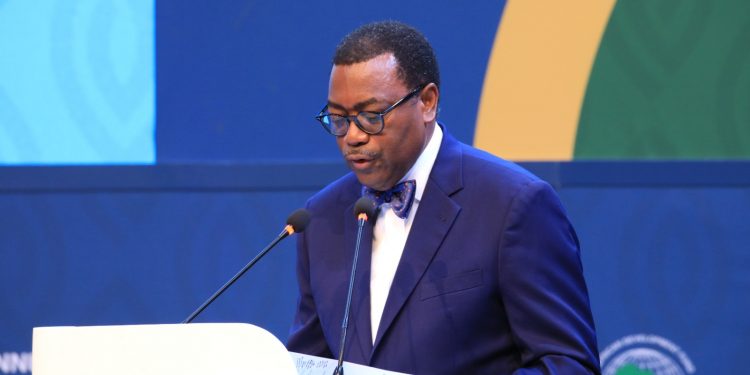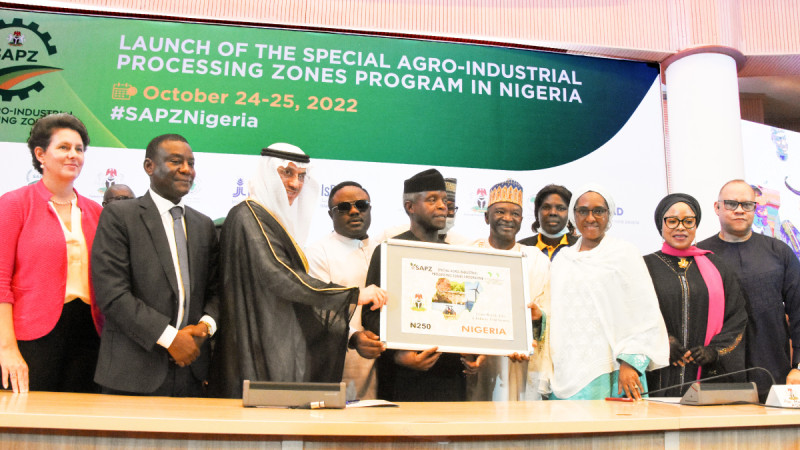The African Development Bank (AfDB) has expressed frustration over the sluggish implementation of Nigeria’s Special Agro-Industrial Processing Zones (SAPZ) project, raising concerns about the disbursement of its $210 million loan for the initiative.
According to the AfDB’s latest Implementation Progress and Results Report, as of December 2024, only 1.61% of the total loan had been disbursed, more than two years after the project’s approval in December 2021. The initiative, designed to boost agro-industrial development through processing hubs and improved infrastructure, has been hampered by administrative inefficiencies and procurement delays.
The report revealed that 98.07% of the AfDB’s allocated $160 million remains unused, while the Africa Growing Together Fund (AGTF) has disbursed just 0.58% of its $50 million contribution. The AGTF, a $2 billion facility funded by the People’s Bank of China and administered by the AfDB, was meant to support such projects but has seen limited impact due to the slow pace of implementation.
The AfDB identified weak capacity among project staff, delays in procurement, and bureaucratic inefficiencies as key obstacles to progress. While Kaduna, Cross River, Oyo, and Ogun states have made some headway, Imo State has yet to commence significant activities. The bank has warned Imo that failure to act could lead to the cancellation of its share of the loan.
The report also highlighted Ogun State’s delay in providing a Service Level Agreement (SLA), a document outlining service expectations and performance metrics. Without an acceptable SLA, continued funding for Ogun could be at risk.
Despite the project’s ambition to generate 500,000 jobs and attract $1 billion in private-sector investments, no significant progress has been recorded in job creation, infrastructure development, or energy provision. Key components such as administrative buildings, optical fiber installations, and feeder roads remain uncompleted.
In response to these challenges, the AfDB has introduced several remedial actions, including deploying experienced consultants to assist project staff, fast-tracking procurement processes, and engaging state governments to ensure compliance. The bank has also mandated regular technical workshops and quarterly project updates to improve accountability.
While the project’s development objective rating has improved from “unsatisfactory” to “satisfactory,” overall implementation remains below expectations. The report notes that procurement for major civil works has finally commenced, with Kaduna State being the only one to close its Design-Build-Operate (DBO) contract and move to the evaluation stage.
Despite the setbacks, AfDB President Dr. Akinwumi Adesina remains optimistic about the initiative’s potential. At the SAPZ program’s inauguration in 2022, he described it as a transformative effort to reduce rural-to-urban migration, expand Nigeria’s fiscal space, and create competitive agricultural value chains.
“The SAPZ will transform rural economies from zones of economic misery to zones of economic prosperity, boosting wealth and livelihoods,” Adesina said.
Recognizing the need for further investment, the AfDB recently mobilized $2.2 billion to advance the second phase of the SAPZ initiative. Announced at the Africa Investment Forum in Morocco, the expansion will extend the program to 24 additional states over the next three years, further linking agriculture to industrialization.
Adesina described this development as “a defining moment for Nigeria’s agricultural transformation,” emphasizing that the second phase will create millions of jobs, empower smallholder farmers, and position Nigeria as a leader in agro-industrialization.
While the initiative holds significant potential, the AfDB’s growing impatience underscores the need for urgent reforms. With nearly the entire loan amount still undistributed, Nigeria must accelerate implementation to meet its agro-industrial ambitions.










